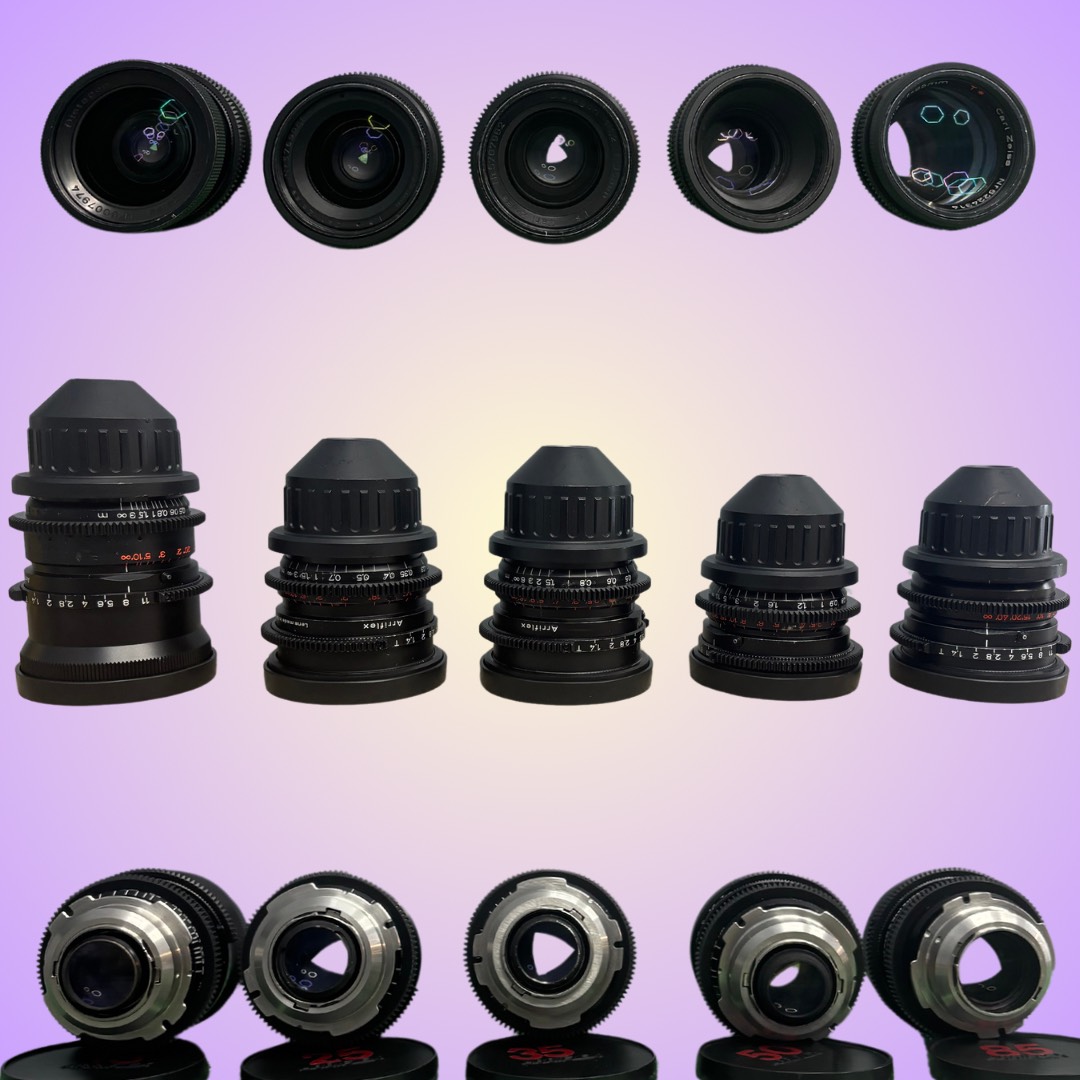The SUPER Speeds are renowned for their impressively fast apertures, reaching T1.4 and even T1.3. The earliest series of high-speed prime lenses were commonly known as “B-Speeds.” Let’s begin exploring their key features and tips for proper identification.
The B-Speeds, introduced in the mid-1970s, were among the fastest prime lenses available at the time. This set included 18mm, 25mm, 35mm, 50mm, and 85mm focal lengths. The name “B-Speed” originated from their factory configuration, as they were originally shipped with an Arri Bayonet Mount (B-Mount). These lenses featured a maximum aperture of T1.4.
A notable characteristic of these lenses is the front engraving, which displays an f/stop value such as “1:1.2,” “1:1.3,” or “1:1.4,” rather than a T-stop rating. While the f/stop represents the theoretical aperture, the T-stop markings on the iris ring indicate the actual amount of light transmitted through the lens to the film.
One of the most distinctive features of the B-Speeds is their triangular iris configuration. These lenses produce a unique triangular bokeh when stopped down. Wide-open, they deliver smooth, round bokeh, but as soon as you adjust the aperture, the unmistakable triangle-shaped bokeh emerges—a hallmark of the B-Speed design.
Breathing is minimal. Flares are very nice thanks to the vintage coatings. Shooting wide open results in a beautiful flattering look with a slight glow to highlights. Stop down and the look is sharper and has more contrast.
Built with Zeiss renowned craftsmanship and attention to detail, ensuring long-lasting durability and consistent performance.
Identifying B-Speeds
No factory focus or iris gear
Half focus rotation (appx 180°)
Triangle aperture (stopped down)
T1.4 maximum aperture, ensuring exceptional low-light performance
Metric and Imperial focus marks
At New Pro Video we have a complete set of Zeiss B Speeds 18mm, 25mm, 35mm, 50mm, and 85mm IN STOCK, JUST SERVICED AND READY TO SHIP!

Leave a Reply